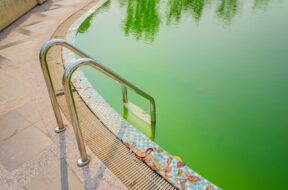
Want to learn more about algaecide? Read on to find out when to add algaecide to your pool maintenance routine and other helpful tips.
A saltwater generator is a popular sanitizing system for residential pool owners. However, there are many questions about these saltwater generators. And these questions mean tons of mis-information about saltwater systems as a whole. Today at Pool Calculator we are going to dive into what a Saltwater generator is, some questions people generally have, and some other articles that will cover topics relevant to your situation.
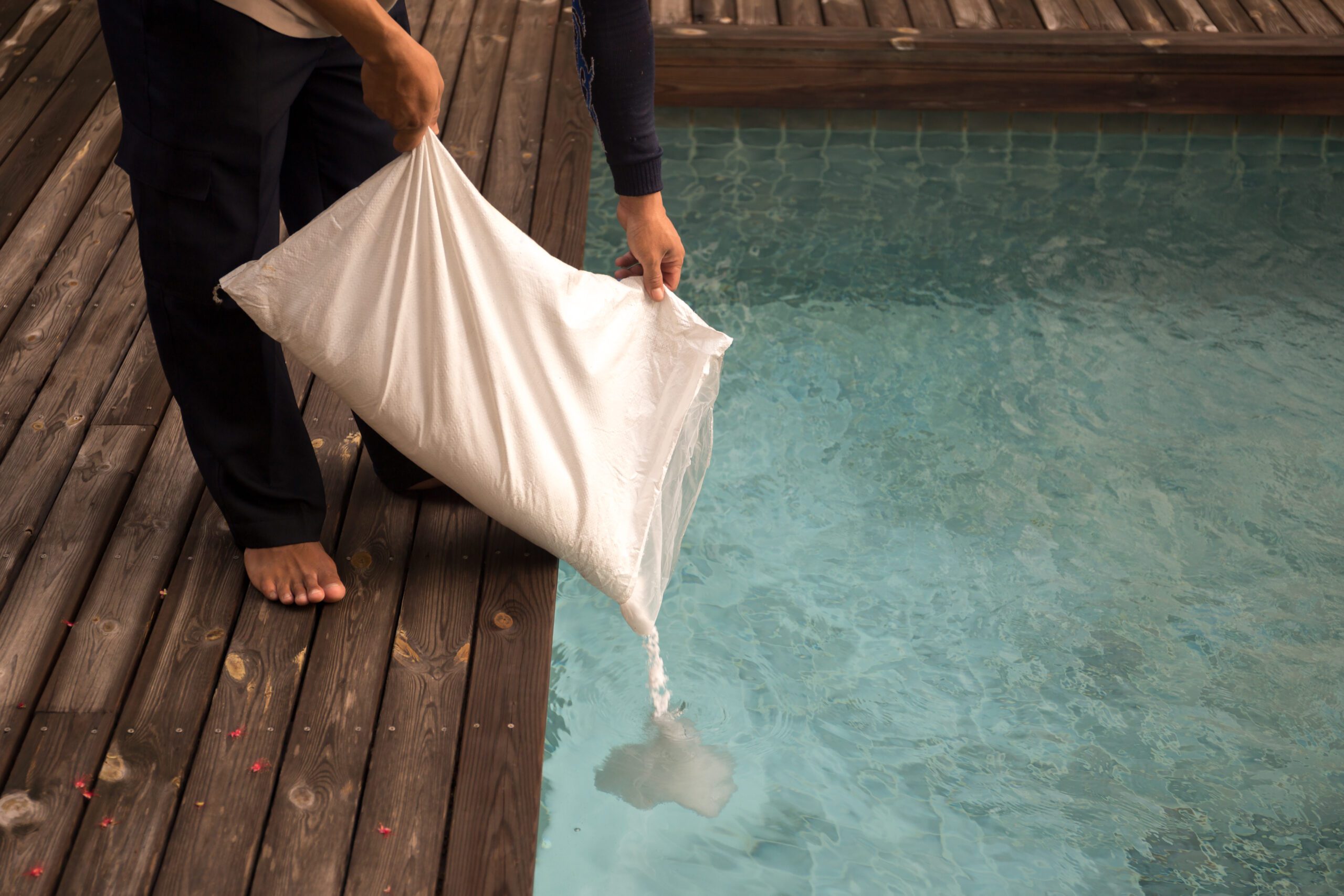
A saltwater generator is a sanitation system that serves as a substitute to a chlorine system. However, this doesn’t mean that saltwater pools are chlorine-free. These systems work by transforming sodium chloride (salt) into a chlorine susbstance. This is done by pouring salt into your water, with the system physically in the pool. This generator is able to convert that salt into chlorine that is then used to clean the pool. It does this with a process called electrolysis, which pulls the chlorine substance from the salt and injects that back into the pool water.
Overall, this chlorine is less pungent and harmful to people. This is because this chlorine is free of chloramines, which is often the cause of irritation in the chemical of chlorine. An absence of chloramines means that the system is a more expensive yet more clean way to sanitize your pool. There is less damage done to your pool and to swimmers with this system, but a higher barrier to entry. This is because most pool owners already spend plenty of money on their pool every year. However, there are a lot of reasons to be enticed by a saltwater generator and plenty of reasons to make the switch.
No. These pools still use a chlorine substance from salt in order to sanitize the pool. However, the chlorine is chloramine free and a lot cleaner. Also, much less chlorine is needed to sanitize the whole pool when related to chlorine systems.
Only about 2500-4500ppm. This is relatively low when compared to the content of the ocean (around 35,000ppm). This salt content shows that it doesn’t take much salt to clean your pool. However, you will be able to notice that you are in a saltwater pool when swimming in it.
Yes! If you purchase a chlorine generator it can seamlessly be added into your pool chemistry. This will often streamline your chemical treatments and save you a lot of labor time. However, you will still need to test your water chemistry and balance it as needed, especially with the addition of the salt reading in the water.
Saltwater vs. Chlorine Pools – Which One is Better for You?
The Pros and Cons of Different Pool Sanitation Systems – Chlorine, Saltwater, Ozone, UV

Want to learn more about algaecide? Read on to find out when to add algaecide to your pool maintenance routine and other helpful tips.
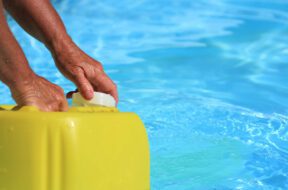
In this quick guide, we’ll answer the question “can you over shock a pool” and unveil the factors to consider when shocking a pool.
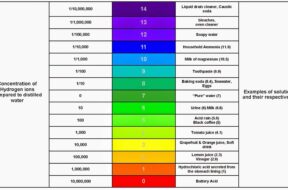
Maintaining both pH and total alkalinity in your swimming pool is important for keeping your pool properly sanitized and non-corrosive. Total alkalinity is to pH what cyanuric acid is to free chlorine. Total alkalinity stabilizes pH levels. The ideal pool pH level is 7.4 to 7.6. The ideal total alkalinity level is 80 to 120 ppm.
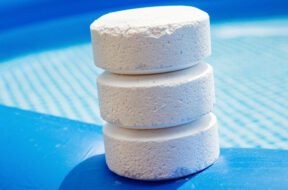
The Association of Pool and Spa Professionals recommends free chlorine levels for both swimming pools and hot tubs be kept between 2.0 and 4.0 ppm. However, the Center for Disease Control recommends free chlorine stay above 1 ppm in pools and 3 ppm in hot tubs.